
A research project at the University of Würzburg (JMU) has received 137,000 euros in federal funding. The project will develop an AI early warning system to prevent errors in the development of new software.
more
A research project at the University of Würzburg (JMU) has received 137,000 euros in federal funding. The project will develop an AI early warning system to prevent errors in the development of new software.
more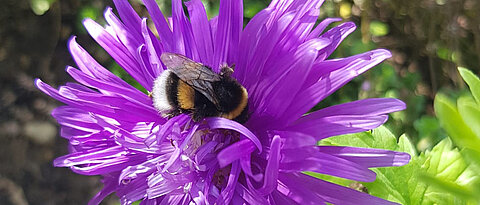
In their natural environment, wild bees are exposed to various pesticides that can have a potentially toxic effect. A study by the University of Würzburg has now shown that bumblebees are relatively resistant to these products.
more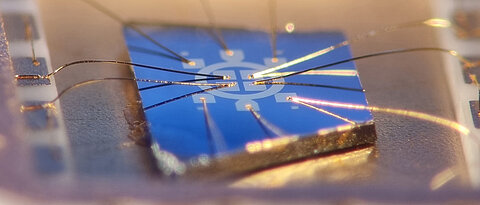
Researchers at the University of Würzburg have developed a method that can improve the performance of quantum resistance standards. It´s based on a quantum phenomenon called Quantum Anomalous Hall effect.
more
Professor Bernhard Nieswandt is investigating a cellular mechanism in blood platelets that appears to play a crucial role in inflammatory diseases. He has been awarded an ERC Advanced Grant for his work.
more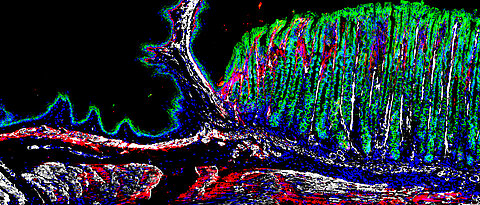
The transition from the esophagus to the stomach is a delicate region from a medical point of view, often associated with pathological disorders leading to cancer. An international research team has now gained new insights into this region. These pave the way for new prevention and treatment options.
more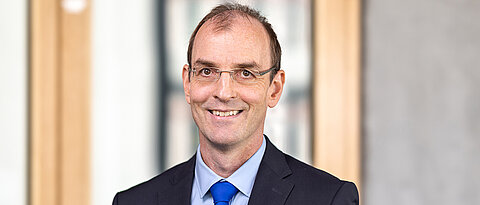
Würzburg-based physical chemist Tobias Brixner has been awarded an ERC Advanced Grant for his pioneering work on multiple electronic excitations. He already received an ERC Consolidator Grant in 2013.
more
The Faculty of Management and Economics at the University of Würzburg wants to support regional companies in a new project. Their processes are to be optimised with the use of AI. The EU is funding the endeavour.
more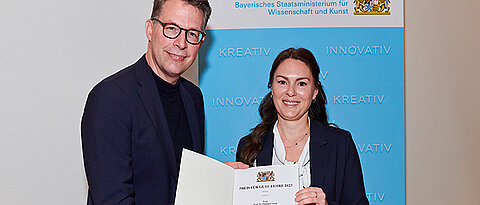
Würzburg management professor Daniela Lorenz receives one of the prizes for good teaching from the Bavarian Ministry of Science. She achieves top rankings in her faculty's teaching evaluations.
more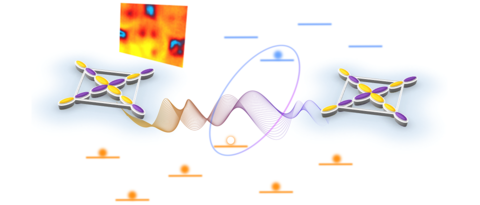
Würzburg physicists of the Cluster of Excellence ct.qmat have discovered that quantum entanglement toughens up quasiparticles against impurity scattering – even when they are subject to strong disorder.
more
An international team including researchers from the University of Würzburg has succeeded in creating a special state of superconductivity. This discovery could advance the development of quantum computers.
more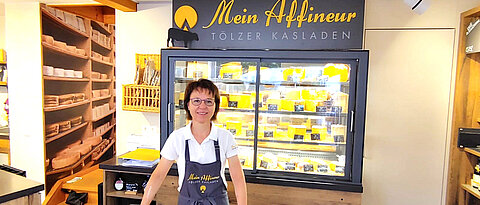
She gave up her job as a pharmaceutical and biotech consultant and now runs a cheese shop: JMU alumna Anne Kuhbier talks about her radical career change.
more
Strong magnetic fields occur at the edge of the Milky Way's central black hole. This is shown by new investigations by an international research team. Astronomers from the University of Würzburg were involved.
more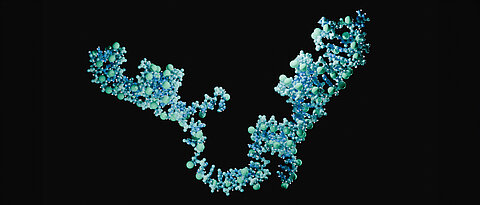
HIRI scientists have identified a small RNA that influences the sensitivity of the intestinal commensal Bacteroides thetaiotaomicron to certain antibiotics.
more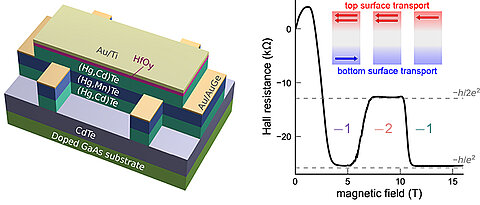
Experimental and theoretical physicists from the Würzburg Institute for Topological Insulators observed a re-entrant quantum Hall effect in a mercury telluride device and identify it as a signature of parity anomaly.
more
One of the benchmarks used to measure the success of research is the volume of publications in esteemed journals. The Würzburg-Dresden Cluster of Excellence ct.qmat has celebrated its 1000th publication.
more